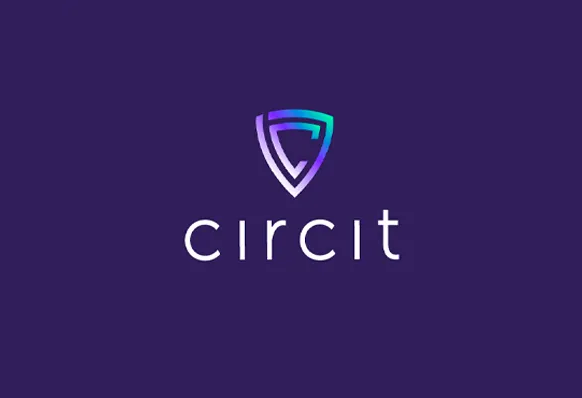From the Dec. 2012 issue.
Judging from the media coverage, technology hardly existed at all in 2012. Instead, the nation sat enthralled, week after week, by billions of dollars in political ads, four debates and nearly-endless campaign speeches.
But it wasn’t as slow a tech year as the political wrangling might portend. In fact, between a rising stock market and a declining jobs market, we managed to see tech news that was both good and bad.
Perhaps the best way to define technology in 2012 is that it was a balance of extremes. On the flashy end of the business, Apple products drove the company to the top of the stock markets; Blackberry died a grisly death; and Microsoft pushed out yet another Windows operating system. On the more subdued end of the industry, companies continued to see solid profits; cyber-security became more critical; and software got notably better – with smaller code, better user interfaces and tighter integration.
So what’s in store for 2013? Here are our predictions:
|
1 |
It’s all about the car. These are the tech wars for dominance, now comfortably settled into familiar trenches. Apple dominant, Google holding its own, with an occasional assault by Microsoft and its allies. Much like the trenches of World War I and the Maginot Line. The only way for anyone to advance is to open a new front, and that’s slowly happening inside the family automobile. Forget radios and GPS systems. Voice-command systems will be the first battle, and this will be a free-for-all in hands-free computing, with the battleground being the center console of your automobile.
|
2 |
AOL will make a comeback. For a company that is barely two decades old, AOL has been many things to many people. A pioneer in online services. The top of the publishing pyramid. A company without an identity. An email service struggling to survive. But ever so slowly, the company has rebuilt itself around its content and its communities, and in 20133 will begin to re-emerge as a serious contender to some of the market leaders. That AOL mail account someday may mark you as a savvy Internet user once again.
|
3 |
The desktop PC won’t be dead. If I had a dollar for every tech pundit who had predicted the death of the PC computer, I would be retired by now. The desktop PC is not dead, it’s just evolving to take the middle ground between the smartphone/tablet markets at one end and the high-def television and video markets at the other. Bigger screens, touch screens, more USB ports and better integration with devices at both ends of the spectrum. The PC will no longer be the top of the tech pyramid, but will begin to emerge as the bridging device – and thus still indispensable.
|
4 |
Touch Screens on the PC will be a bust. Sure, touch screens are amazing and cool and the wave of the future. Until you realize that the screens are more fragile than other types of screen. And until you realize that every tough on the screen means a greasy fingerprint that requires cleaning to see the screen properly. Smartphone users will tell you that touch screens are already a nuisance in that market. Imagine having to clean a surface twenty times that size every few minutes. Remember, touch screen monitors have been around for many years now, and have already failed to capture the attention of users in any significant way.
|
5 |
Tax technology will resurge as a major part of accounting. Particularly tax software and systems. Forget about tax simplification – all of the indicators point to a tax system that is more difficult to keep pace with, tax returns that are more complicated, and tax compliance measures that require more careful attention. This means that tax software will become more sophisticated with each revision, in the battle to keep current. This will drive additional customers to tax professionals – many of whom have done their own taxes in previous years. And will drive the development of newer and better technologies the manage taxes.
|
6 |
Windows 8 will be…moderately successful. Microsoft has gone a long way to make this latest operating system its best ever, and early impressions are that they have succeeded. But they have also attempted to make a radical change in our perceptions of what an operating system is and should be. In an effort to develop a single system for all sizes of screens, Microsoft has upped the ante in the battle for the desktop. But it has also introduced a lot of change very rapidly, and is facing some resistance even now because of it. Stay with Windows 7, anyone?
|
7 |
System security will begin to evolve. Let’s face it, the user-name-and-password routine has failed dismally when it comes to protecting data. Any data that can be shared will be shared with people we don’t choose to share it with. New systems are beginning to emerge, but they are too complicated for the average consumer to easily use. That means that if we have any hope of securing sensitive data, it will require a new strategy. Or more than one. By 2013, we will begin to see that take shape.
|
8 |
Technology costs will soar. The tech sector is one of the few areas that seem impervious to the ravages of recession. Sure, many parts of society get left behind. But the upscale, urban early adopters will continue to buy as long as they have a paycheck, and that drives the sales of technology tools and toys. But the down side to this is that everything becomes more expensive. Entertainment companies will continue to push “anywhere, everywhere” viewing, at increasingly higher costs. Data caps will try to push cell phone data bills higher to offset losses in voice revenues. Cable and satellite companies will push to generate higher revenues per subscriber. Prediction: we will see total tech costs rise by up to 10 percent due to new taxes and efforts to maintain revenue growth for tech companies.
|
9 |
PC Gaming will make a comeback. Gaming consoles have been all the rage for the past decade, because they delivered a superior gaming experience and graphics. But the battle for device space in the living room has caused consoles to move into PC territory, offering streaming video and Internet access. At the same time, PC-based “media centers” have become more prominent as part of the living room entertainment mix. The arena in which PCs do not have superiority today is gaming. Look for PC software manufacturers to pushing harder in gaming to take on competition from the consoles.
|
10 |
App Stores will become a thing of the past. Once Apple proved that it could stock iTunes with superior products and get a superior price, the market exploded with app stores. Virtually every company build castle walls and moats around their content, trying to achieve Apple’s levels of profitability. It did not happen. Instead, many companies found that by making their content proprietary they were simply driving customers toward…well, Apple and its products. Look for companies to dismantle their own app stores, instead rallying around a central store for which they can attain some shared revenue. Sounds like a good deal for Google, or Amazon.com.
For an expanded version of this article, with more insight, visit www.CPAPracticeAdvisor.com/10826369.
Thanks for reading CPA Practice Advisor!
Subscribe Already registered? Log In
Need more information? Read the FAQs





